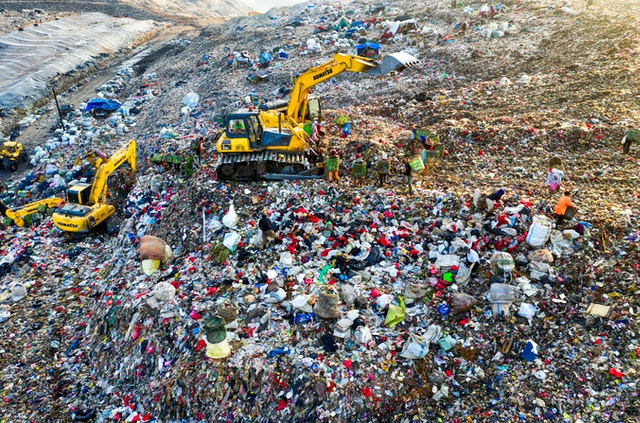
What Goes Into Landfill?
4th May 2020
Have you ever wondered what, exactly, ends up in landfill? Discussions around waste collection can often be confusing. Find out why we need to rethink our 'linear' economy and move towards a circular economy.

What is Landfill?
Anything that goes into your household general waste bin - ends up in landfill. Landfills are the final destination for a huge amount of waste which is not recycled, composted, reused, or otherwise repurposed. They are designed to store waste – not let it break down. Landfill is where anything you put in your household waste bin ends up. There are some waste items that cannot be recycled in any way, making landfill the only place to dispose of them. Other waste items can be recycled, but end up in landfill anyway. Waste stored in landfill poses environmental consequences. Organic waste in landfill releases methane gas – a greenhouse gas 80 times more potent than CO2 – and any waste in landfill produces leachate – a toxic liquid that can pollute waterways and soils.
How Big is the Problem?
Currently, the world sends a lot to landfill that it shouldn't. 2.01 billion tonnes of municipal solid waste is generated around the world annually. Much of this is not managed in an environmentally responsible manner. In Australia, food waste comprises up to 41% of the rubbish in household bins. This is food waste that will produce methane when decomposing in landfill. Waste in Australia from the commercial sector is estimated to be 21 million tonnes by 2020.
What are the Alternatives to Landfill?
To find alternatives, we will have to pursue a circular economy where materials are recycled, reused, and repurposed.
Recycling
Make sure you know what can and can't be recycled. Recycling is an important part of the circular economy. Common recyclable products are hard plastics, glass, and paper products. However, different councils and town have different rules for recycling, creating a lot of confusion around correct disposal for many products. The quickest and easiest way to find out what you can recycle is to do a Google search – most council websites will have a page detailing what products can and can't be recycled.
Composting
Anything you compost will end up back in the ground and contribute to new life. Composting is a proven solution for collecting and diverting food waste and compostable packaging from landfill. Many BioPak products can be composted at home. Simply drop the packaging in the compost bin with your food scraps and organics. The worms will thank you.
Information taken from BioPak's website. Read more about a circular economy and how we might promote composting Australia wide, on our blog.
Planet Friendly Packaging acknowledges the traditional custodians of the land on which we work. Our thoughts go out to everyone affected by COVID-19. Stay safe.

